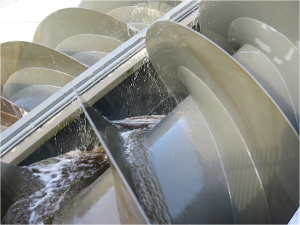New Threat to our Rivers from Hydropower Grants
 The Angling Trust has raised concerns that the Community Energy Strategy announced by Energy Minister Ed Davey today, coupled with the already generous Feed in Tariffs offered by government, will lead to a fresh wave of applications for planning permission for hydropower turbines from community groups that could do great damage to fisheries for many decades to come.
The Angling Trust has raised concerns that the Community Energy Strategy announced by Energy Minister Ed Davey today, coupled with the already generous Feed in Tariffs offered by government, will lead to a fresh wave of applications for planning permission for hydropower turbines from community groups that could do great damage to fisheries for many decades to come.
In response, the Trust has published a free guidance document to community groups and developers to provide practical advice about how to reduce the impact of hydropower on fish and other wildlife. The Angling Trust has reviewed hundreds of applications for hydropower schemes in recent years and its experts have concluded that the majority of them would have a detrimental impact on the ecology of rivers. It has successfully objected to numerous schemes and Fish Legal, which acts as the Angling Trust’s legal arm in England, even managed to get a legal injunction to stop a major hydropower project going ahead last year on the River Trent.
The Trust has also battled successfully over the past four years with the Salmon & Trout Association to get new guidelines introduced by the Environment Agency which should reduce the scale and number of schemes coming forward. According to Government figures, the maximum amount of electricity that could be generated by all of the 26,000 sites which have potential for run of river hydropower would be less than 0.5% of national electricity demand, and in practice it will be much less than this because many schemes would be unfeasible. The Angling Trust has repeatedly questioned whether it makes sense to support hydropower with public subsidy when it can do great damage to fisheries and yet generates so little power on a national scale. Many community groups have spent considerable time and money developing plans for schemes which have turned out to be unfeasible.
For example, North Devon Council wasted almost £150,000 on the development of plans for a community scheme on the East Lyn in North Devon to install a new concrete weir to generate hydropower. With one of the last healthy salmon populations in England, this beautiful river is a Site of Special Scientific Interest and the scheme was axed. Other community groups who have managed to get permission to develop have been disappointed when the financial returns promised by consultants has failed to materialise.
Mark Lloyd, chief executive of the Angling Trust said: “We are very concerned that these grants will lead to another wave of damaging and pointless hydropower developments that will damage our fisheries for generations. Our advice document is aimed at communities who are motivated to do their bit to save the planet from climate change, but who might not be aware that their schemes might actually do more harm to the environment than good. The Angling Trust wants to avoid communities’ good intentions leading to unintended consequences and urges them to look at other ways of generating power than hydropower.”
 The Angling Trust has raised concerns that the Community Energy Strategy announced by Energy Minister Ed Davey today, coupled with the already generous Feed in Tariffs offered by government, will lead to a fresh wave of applications for planning permission for hydropower turbines from community groups that could do great damage to fisheries for many decades to come.
The Angling Trust has raised concerns that the Community Energy Strategy announced by Energy Minister Ed Davey today, coupled with the already generous Feed in Tariffs offered by government, will lead to a fresh wave of applications for planning permission for hydropower turbines from community groups that could do great damage to fisheries for many decades to come.
